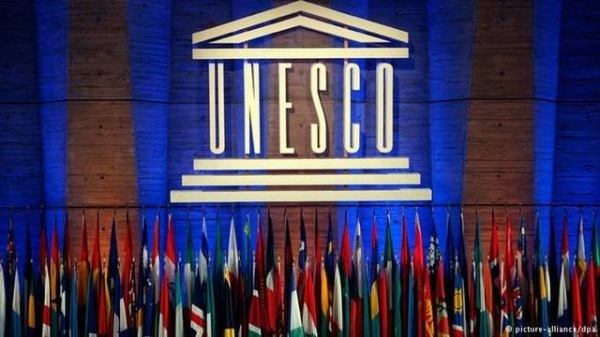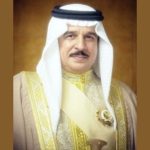The Arab Group at the United Nations Educational, Scientific and Cultural Organization (UNESCO) is hosting the Arab Week at UNESCO event from November 4-5. This event, organized at the UNESCO headquarters in Paris, marks the first time in over fifty years that Arab countries have collaborated with UNESCO. The initiative, supported by Saudi Arabia and the Saudi National Commission for Education, Culture and Science, aims to enhance coordination and understanding among countries to initiate development projects at various levels. The Arab Week at UNESCO features cultural and artistic exhibitions, including displays of Arab cultural products, Arabic calligraphy, photographs of UNESCO heritage sites in the Arab world, Arab music, cooking, handicrafts, and fashion. Symposia on topics such as the Arabic novel, artificial intelligence, Arabic calligraphy, and children’s literature are also part of the event.
The “Arab Week at UNESCO” initiative highlights Saudi Arabia’s efforts to promote cultural communication between Arab countries and the rest of the world. With the support of all Arab countries, this initiative was established following a meeting of Arab Ministers of Culture at ALECSO in May 2024 in Jeddah. The event is expected to strengthen the position of Arab culture within UNESCO, establish new partnerships between Arab countries, UNESCO, and other member states, foster intercultural dialogue and mutual understanding, ensure the longevity of the UNESCO Arab Week initiative, and encourage youth to take an interest in Arab culture.
The Arab Week at UNESCO features a diverse range of activities and exhibitions to showcase the rich cultural heritage of the Arab world. From artistic displays to symposia on various topics, the event aims to bring together Arab countries and international partners to promote cultural exchange and cooperation. By highlighting the significance of Arab culture and heritage, the initiative seeks to foster a greater understanding and appreciation of the Arab world among global audiences. Through events such as the Arabic calligraphy competition, displays of artwork, and demonstrations of traditional art forms like sand drawing, the Arab Week at UNESCO offers a unique opportunity to celebrate the diversity and creativity of Arab culture.
The participation of all Arab countries in the Arab Week at UNESCO reflects a collective commitment to promoting cultural diplomacy and collaboration on a global scale. By engaging in activities that showcase the artistic, culinary, and literary traditions of the Arab world, countries are able to share their heritage with a wider audience and forge new connections with international partners. The symposia and exhibitions featured at the event provide a platform for dialogue and knowledge exchange, fostering greater cooperation and understanding among participants. Through initiatives like the Arab Week at UNESCO, Arab countries are able to strengthen their cultural ties with the international community and raise awareness of their contributions to global culture and society.
The Arab Week at UNESCO represents a significant step towards elevating the status of Arab culture within the international community and creating lasting partnerships with UNESCO and other member states. By hosting events that highlight the diverse cultural expressions and creative achievements of the Arab world, the initiative aims to increase visibility and appreciation for Arab heritage on a global scale. Through collaborations with international organizations and cultural institutions, Arab countries are able to showcase their unique contributions to art, literature, music, and cuisine, fostering greater cross-cultural dialogue and exchange. The success of the Arab Week at UNESCO will not only strengthen the position of Arab culture within UNESCO but also promote a deeper understanding and respect for the cultural diversity of the Arab world among audiences worldwide.
In conclusion, the Arab Week at UNESCO serves as a testament to the cultural richness and diversity of the Arab world, offering a platform for countries to come together and celebrate their shared heritage. By promoting cultural exchange, dialogue, and collaboration, the initiative aims to build bridges between Arab countries and the global community, fostering greater understanding and appreciation for Arab culture. Through a range of activities, exhibitions, and symposia, the event showcases the creativity and innovation of the Arab world, while also highlighting the importance of preserving and promoting cultural heritage for future generations. As the Arab Week at UNESCO continues to evolve and grow, it will play a crucial role in strengthening cultural ties, promoting intercultural dialogue, and celebrating the vibrant traditions of the Arab world on the global stage.










